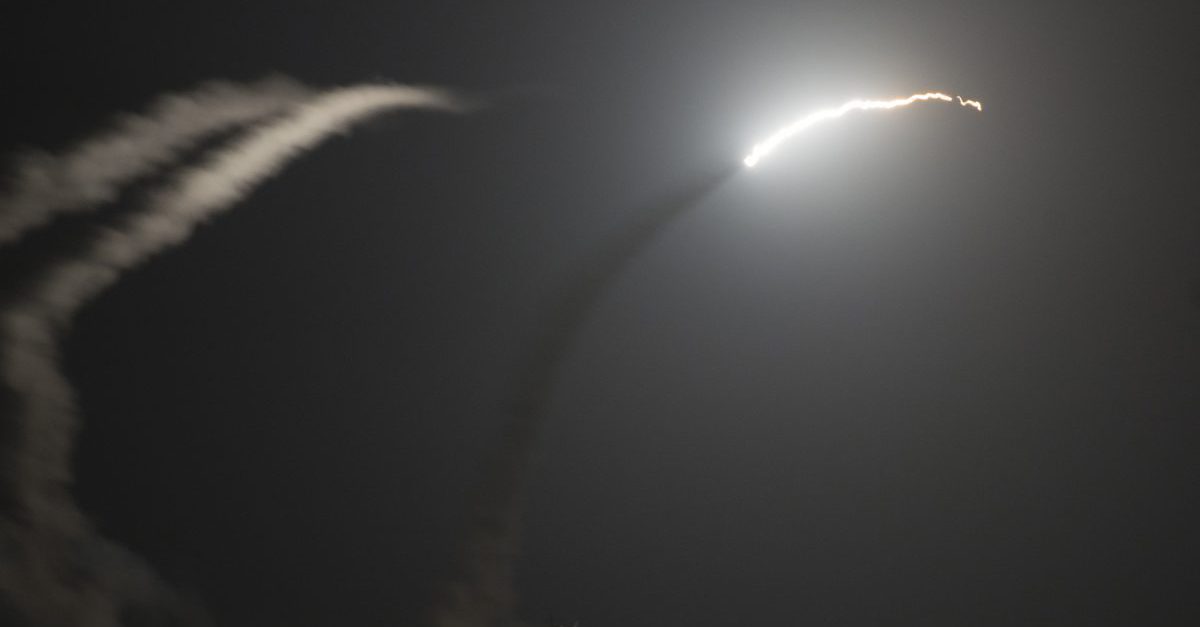Here are some of the developments that have come out of Syria over the past week:
Videos by Rare
♦ In a warped inversion of Donald Trump’s cruise missile attack, the Turkish government gave Washington one hour’s notice before launching airstrikes at Kurdish militants in northern Syria and Iraq, and later claimed to have “neutralized” 70 of them. The State Department issued a teeth-gnashingly hypocritical statement saying it was “very concerned, deeply concerned, that Turkey conducted airstrikes…without proper coordination either with the United States or the broader global coalition to defeat ISIS.” (Who does that?)
♦ The battle for the Islamic State’s self-styled capital of Raqqa blasts onwards, as the Syrian Democratic Forces clash with what’s left of ISIS there and refugees pour out of the city. Meanwhile, bombs launched by the American-led coalition on Tuesday accidentally blew up at least 11 innocents. The Syrian Observatory for Human Rights reports that 1,264 civilians, including 280 children, have been killed by coalition bombs since 2014, though that number is at best a dart at the board.
♦ Reinforcing the sectarian pitfalls of this messy Syrian war, al-Qaeda chief Ayman al-Zawahiri rallied Sunnis to “guerilla war” in Syria and instructed them to “have patience and prepare themselves for a long war against the Crusaders and their Shia allies.” Al-Qaeda previously had a franchise fighting the Assad regime in Syria known as Jabhat al-Nusra, but it went solo (though no less extremist) last year and then joined up with other factions to form an Islamist coalition known as Tahrir al-Sham.
RELATED: “Mad Dog” Mattis emerges as a voice of reason on Syria
Two of those stories come from Al Jazeera, which means unless you’re a diligent consumer of foreign policy news, you probably missed them. From mainstream American outlets, it’s been a total blackout. Our cable news channels, which less than three weeks ago had thrown to pervasive Syria coverage, are today yammering about Ivanka and the latest intrigue from Michael Flynn. For all the grousing from reporters about how Trump tries to interfere with their duties, they sure do let him dictate their agendas, changing the subject instantaneously whenever he finds himself grazed by controversy. Why American TV news can’t cover dozens of stories thoroughly rather than half a dozen obsessively is beyond me.
Following Trump’s attack on Syria, I fretted that mission creep would drag us into a more protracted conflict, while hawks gushed that the president was finally getting serious about his commander-in-chief duties. It appears that Trump has foiled us both, limiting this to just a cursory strike waged over chemical weapons as he said he would—at least for now. Bombing Syria hasn’t cowed our enemies, as I predicted it wouldn’t, with Russia teed off, Turkey making moves, and North Korea defiant as ever, but we at least seem to have dodged yet another Middle Eastern quagmire. Still, stay alert. H.R. McMaster, the national security advisor, is reportedly stumping for more ground troops in Syria, and it remains an open question whether skeptics like James Mattis will be able to counter him in the ears of this impressionable president.
RELATED: Don’t be fooled: The Syria strike was an act of war
In the meantime, I can’t get over how quickly Syria dropped off our dashboard. There’s something gravely wrong in our constitutional republic when we engage in an act of war against a sovereign country one day and then a couple weeks later practically forget that it happened. I understand Syria isn’t as sexy an issue as Vladimir Putin’s nonexistent influence over the federal government, but again, we attacked Assad’s military and came within a whisker of the Russians. That makes this rather important. Ignoring it now cements the new norm, under which America casually tosses around bombs without congressional authorization or consideration, and then returns to that most grating of statuses “business as usual” shortly thereafter.
The line between war and non-war has been obliterated. It’s no longer possible to tell whether the United States regards its act of war as not at all a war or whether it behaves like it’s not at war when it’s fully aware it’s sunk into perpetual war. Whatever the case, Steve Mnuchin is giving a major speech later today. Make sure you tune in.



